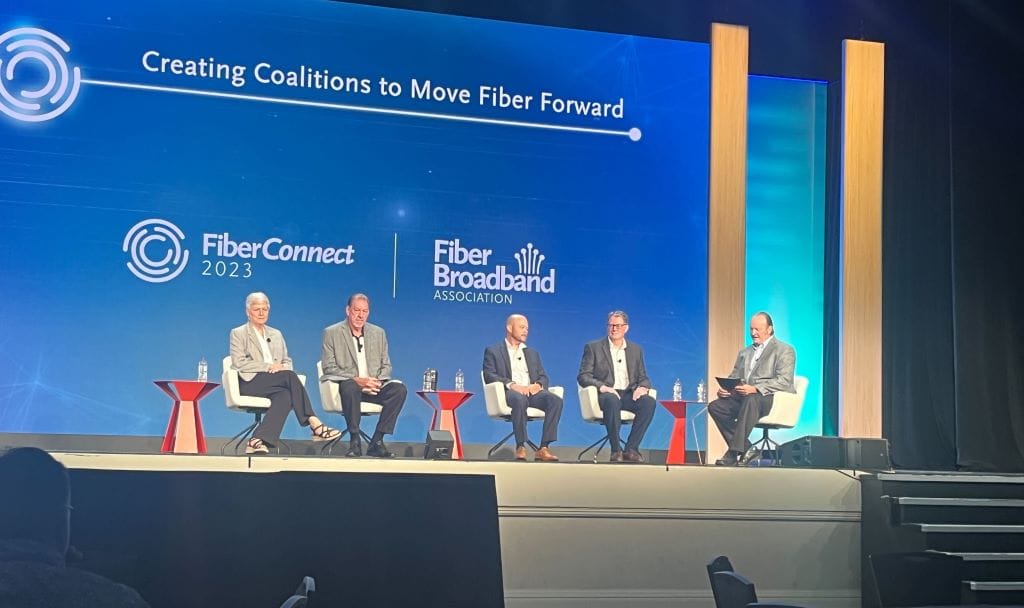Coalitions To Play Large Role in BEAD Projects, Say Fiber Builders
Coalitions can give small players more influence in the telecom space, said panelists at Fiber Connect.
Teralyn Whipple

ORLANDO, August 23, 2023 – Coalitions and partnerships between cooperatives, providers, and municipalities will play an important role in federally-funded broadband projects through the $42.5 billion Broadband Equity Access and Deployment program.
Coalitions between electric co-ops and other telecom players are powerful because it builds on the “brotherhood” that develops between co-ops over decades of no competition, said James Tanneberger, representative for Indiana-based Accord Telecommunications Collaborative.
Trust between members is a powerful way to allow the coalition to pull together on a national level and get broadband to all unserved and underserved addresses in the United States, said Tanneberger.
As a coalition, many small providers are given the power and influence to be more competitive in the telecom space, Tanneberger continued. Together, a partnership ensures that smaller providers can make bids at cell tower and state grant opportunities, like the BEAD program, he said.
“We need each other,” Tenneberger said, saying that partnering together will enable a combination of high-level expertise with fresh innovative ideas. Cooperatives bring assets like territories covered while telecom companies can bring years of experience providing internet connection to consumers, he said.
Rural co-ops, providers and municipalities are far more alike than they are different, added John Greene, CEO of New Lisbon Holdings. “We need to build these coalitions based on that commonality,” he said.
“We are stronger in partnerships than we are individually,” said Greene. If small companies are going to survive, they must be in partnerships in order to build a strong base that will support them for future growth.
Greene added that it is essential that companies do not overlook the most crucial partnership that exists with the customers. Large corporations aren’t rated high on customer satisfaction because they don’t foster partnerships with their customers, he said.
Katie Espeseth, vice president of electric co-op EPB in Tennessee, advised that entities in search of partnerships should find partners that share their mission, vision, and values. She added that relationships with vendors should also be considered partners.
When determining if a partner is a good fit, consider their culture, customer service, investment in innovation, technical ability, business stability, and pricing structure, Espeseth suggested. “Intrinsic values are just as important.”
As we pick a partner of vendor, we need them to share innovation with us, open up research and development findings and be open to adopt new innovation, she said.
Partnerships between private and public entities are a topic of much discussion by industry leaders who advise that trust is cultivated and partnerships are leveraged to address workforce shortages.








Member discussion